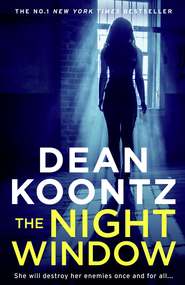По всем вопросам обращайтесь на: info@litportal.ru
(©) 2003-2025.
✖
Relentless
Автор
Год написания книги
2018
Настройки чтения
Размер шрифта
Высота строк
Поля
“Get a good wine. On me. Keep the receipt. I’ll reimburse.”
“Even Lassie thinks this review requires vengeance rather than celebration.”
“A hundred-dollar bottle. Or eighty. There’s good stuff at sixty. Wait. You said vengeance?”
“Milo said it and Lassie agreed. I explained it was a bad idea.”
“Don’t respond to Waxx.”
“I won’t.”
“Don’t respond, Cubman.”
“I won’t. I said I won’t.”
“Bad move. Very bad move.”
“I’m already over it.”
Milo had switched on the computer and returned to Google Earth, to the aerial photograph of the critic’s house.
Leaning forward in the office chair, Lassie sniffed as though, even through an electronic medium, she could detect Waxx’s infernal scent.
“Think positive,” Hud Jacklight encouraged me. “You’re a Waxx author now. You’re literary.”
“I’m so impressed with myself.”
“Great exposure. A Waxx author forever.”
“Forever?”
“From now on. He’ll review every book. You caught his eye. He’s committed to you.”
“Forever is a long time.”
“Other writers would kill for this. To be recognized. At the highest level.”
“I wouldn’t kill for it,” I assured him.
“Because you’ve already got it. What a day. A Waxx author. My client. This is so good. Better than Metamucil.”
The fiber-supplement reference was not a joke. Hud Jacklight had no sense of humor.
Humorless, without scruples, not much of a reader, Hud had been the most successful literary agent in the country for two decades. This said less about Hud than it did about the publishing industry.
“A Waxx author,” Hud gushed again. “Incredible. Fabulous. Son. Of. A. Gun.”
“It’s November,” I said in a perky voice, “but, gee, it feels like spring.”
Before Penny and I left for Roxie’s Bistro that evening, I had received calls from my publisher, my audio publisher, my film agent, and three friends, regarding the Waxx review. All of them said in various ways the same thing that Penny had advised: Let it go.
When Vivian Norby, Milo’s baby-sitter, arrived, she said as she stepped into the foyer, “Saw the review, Cubby. He’s an ignorant egg-sucker. Don’t pay him any mind.”
“I’ve already let it go,” I assured her.
“If you want me to sit down with him and have a talk, I will.”
That was an intriguing concept. “What would you say to him?”
“Same thing I say to every kid too big for his britches. I’d lay out the rules of polite society and make it clear that I know how to enforce them.”
Vivian was fiftyish, solid but not fat, steely-eyed but warm-hearted, as confident as a grizzly bear but feminine. Her husband, a former marine and homicide detective—now deceased—had never won an arm-wrestling contest with her.
As usual, she wore pink: pink sneakers with yellow laces, a pink skirt, and a pink-and-cream sweater. Her dangling earrings featured silver kittens climbing silver chains.
“I’m sure you could make him properly contrite,” I said.
“You just give me his address.”
“I would—except I’m not dwelling on what he said. I’ve already let it go.”
“If you change your mind, just call.”
After closing the door behind her, she took my arm as if this were her house and she were welcoming a guest, and she escorted me out of the foyer, into the living room, almost lifting me onto my toes as we went. Shoulders back, formidable bosom raised, Vivian moved as forcefully as an icebreaker cracking through arctic seas.
Three years previous, she had been sitting for the Jameson kids on Lamplighter Way when two masked thugs attempted a home-invasion robbery. The first intruder—who turned out to be a disgruntled former employee of Bob Jameson’s—wound up with a broken nose, split lips, four cracked teeth, two crushed fingers, a fractured knee, and a puncture in his right buttock.
Vivian suffered a broken fingernail.
The second thug, who fared worse than the first, developed such a disabling fear of fifty-something women who wore pink that in court, when the prosecutor showed up one day wearing a neck scarf of that fateful color, the accused began to sob uncontrollably and had to be carried out of the courthouse on a stretcher, by paramedics.
In the living room, Vivian let go of me and put her cloth carryall beside the armchair in which she would spend the evening.
“Your book is wonderful, Cubby.” She had read an advance copy. “I may not be as educated as a certain hoity-toity critic, but I know truth when I see it. Your book is full of truth.”
“Thank you, Vivian.”
“Now where is Prince Milo?”
“In his room, building some kind of radio to communicate with extraterrestrials.”
“The time machine didn’t work out?”
“Not yet.”
“Is Lassie with him?”
“She’s never anywhere else,” I said.











